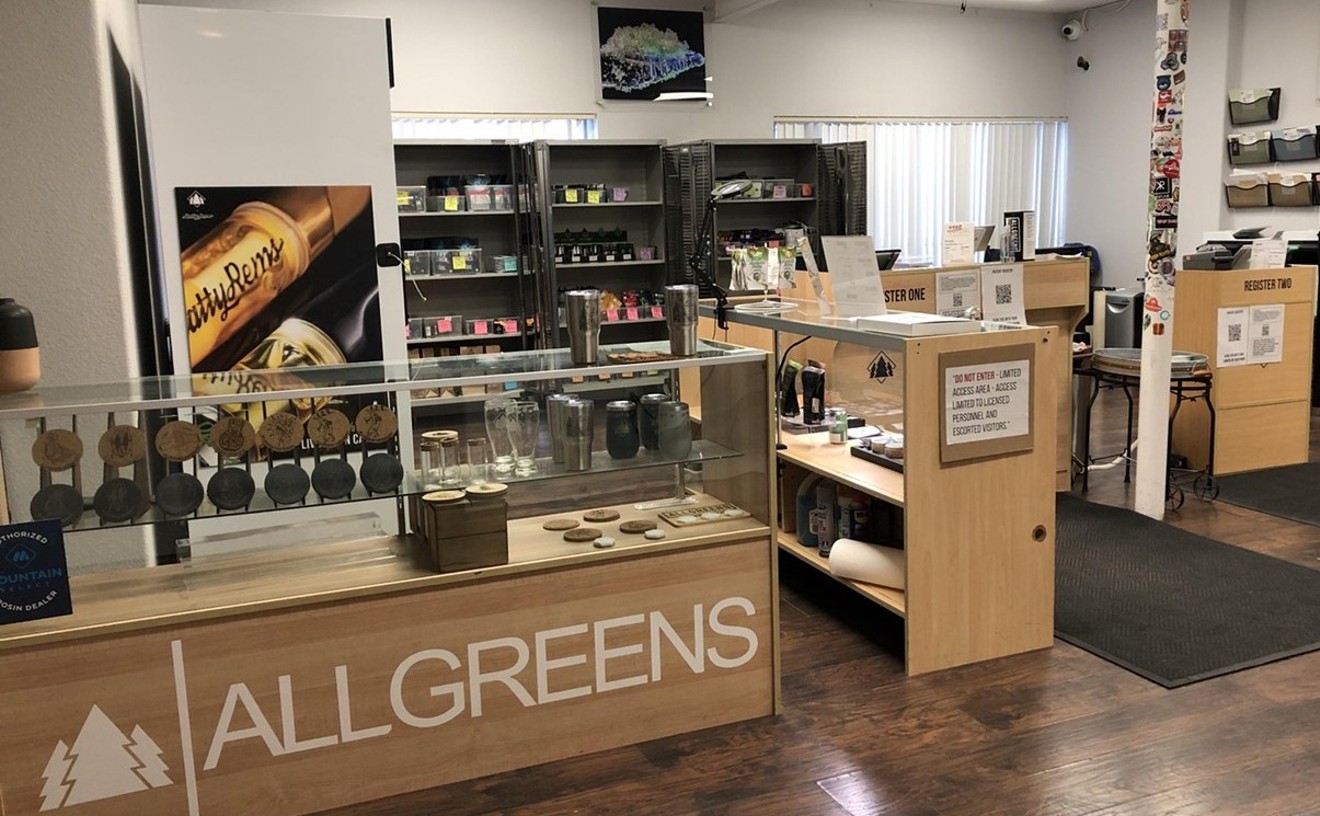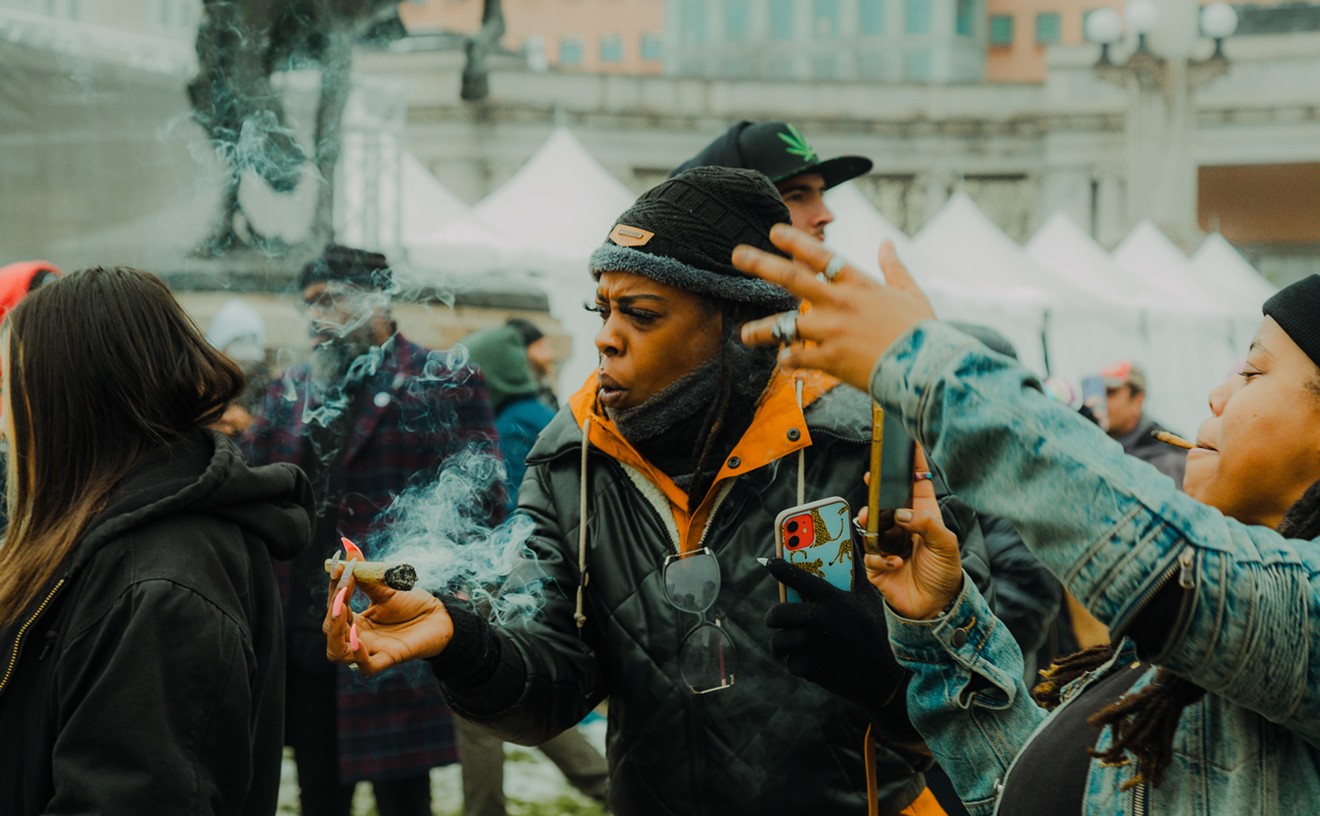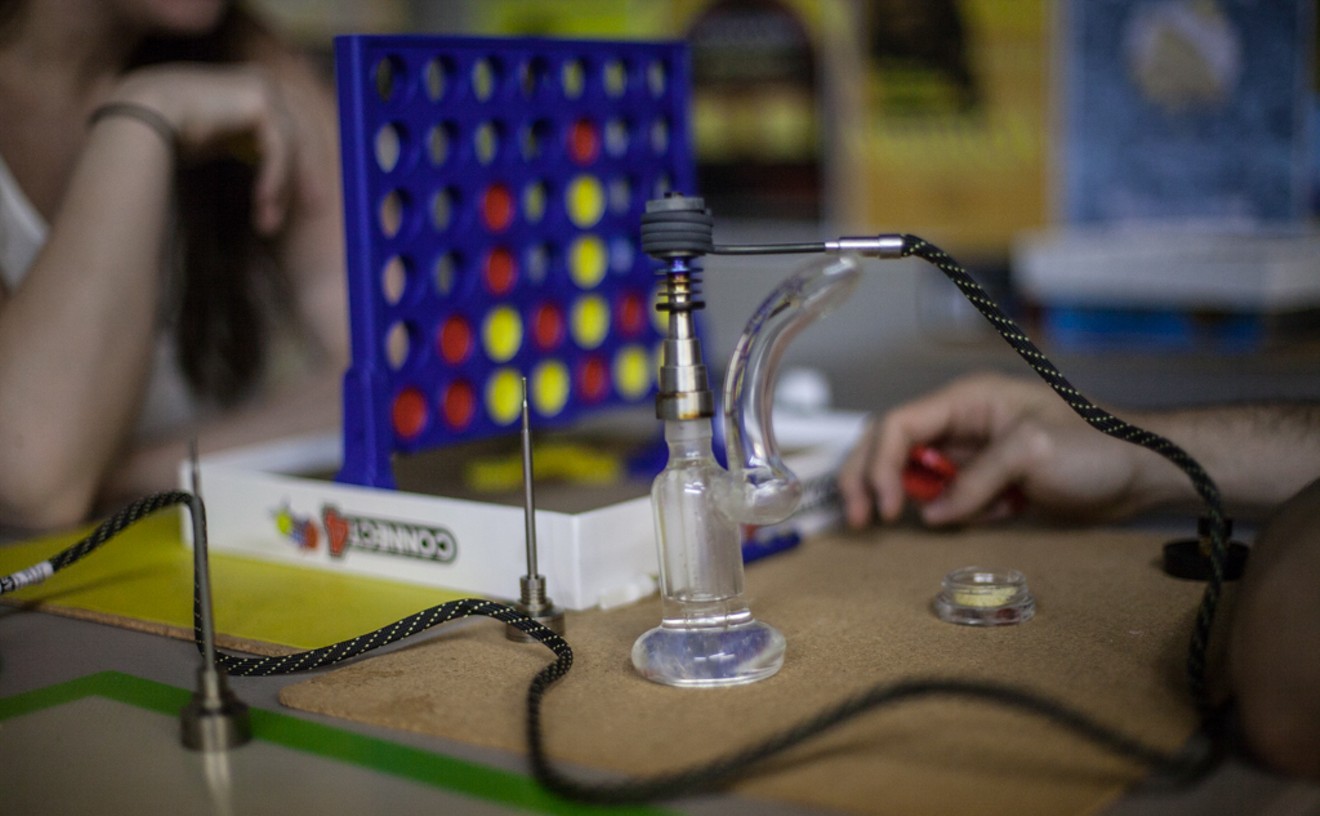As Denver considers allowing marijuana delivery within city borders, two of legalization's biggest supporting arguments — social equity and medical access — are coming to a head.
With the COVID-19 pandemic in mind, medical marijuana activists and pot industry representatives have been pushing for Colorado municipalities to fast-track marijuana delivery as a way to maximize social distancing. Under a law passed by the Colorado Legislature last year, until 2021 delivery is only allowed for medical marijuana patients, and only in areas that have approved delivery. So far, Boulder and Superior are the sole towns that have.
Although Denver has yet to officially opt for delivery, it now looks like a matter of when, not if. The city's new Marijuana Licensing Work Group held its first meeting on May 14 and has a few more scheduled where members will discuss delivery, social consumption businesses and other licensing issues before issuing a recommendation to Mayor Michael Hancock's administration and Denver City Council. And at the MLWG's first meeting, it became clear that approving delivery is still likely months away.
"This is really just the first step," Molly Duplechian, the MLWG co-chair and deputy director of Denver marijuana policy, explained. "But it will move forward through an ordinance process, and those changes do require city council approval."
Part of the MLWG's stated mission is to promote social equity in Denver's marijuana industry, and several members aren't ready to push delivery licenses for current dispensary owners without provisions in place to ensure equitable distribution of the new business opportunities. And because the state law allowing marijuana delivery deems that only licensed dispensaries and marijuana transporters can perform deliveries, allowing delivery now would give a head start to already-established businesses, argued District 9 City Councilwoman and MLWG member Candi CdeBaca.
"Equity has to cross all of our conversations at this point and how we use our time," she said. "I don't think it's fair to give a head start to anybody without clearly considering and identifying who our social equity applicants are."
According to CdeBaca, around 200 marijuana business licenses have been issued in her district (one marijuana business can have multiple licenses), where neighborhoods such as Elyria/Swansea and Globeville are dense with dispensaries and growing operations. Despite the heavy concentration of pot businesses in that area, though, CdeBaca said that only one person of color owns a marijuana business there. She won't support delivery until people of color or those impacted by the War on Drugs are given licensing priorities, she told fellow committee members.
The councilwoman proposed adopting a program similar to one in Oakland, where the first round of marijuana business licenses were set aside for social equity applicants. That strategy would likely mean that delivery in Denver wouldn't be implemented until 2021, when recreational delivery will be allowed, too — again, in municipalities that have approved it.
Councilmember Chris Hinds, who represents District 10, argued in favor of implementing delivery now, pointing to the 10,600-plus medical marijuana patients currently living in Denver. "It's a demonstrated vulnerable population," he explained. "When [legalization] started, it does seem like the medical patients were the focus of this need."
Marijuana lobbyist Shawn Coleman, also a member of the committee, said that a delivery business requires too much funding for it to effectively help with diversity in Colorado marijuana industry ownership.
"Delivery is the least opportune law for the equity discussion, because current law maintains you must have a dispensary or transport license, which is capital-intensive," he said, adding that we should "focus our equity conversations on other license types," such as social use and hospitality, and micro-business licenses for infused products.
State law mandates that marijuana delivery vehicles have strict security and surveillance measures, such as GPS tracking and video cameras and lockboxes. Even with those in place, any delivery service with a transporter license would have to establish relationships with dispensaries.
But social equity advocates are less concerned with cost than they are with bringing diversity to Colorado marijuana business ownership, which was 88 percent white in 2018, according to the state Marijuana Enforcement Division.
"We would be fine with medical happening earlier, but there would have to be some type of ordinance written" that ensures social equity in Denver's marijuana delivery sector, said Sarah Woodson, a member of the committee who's director of The Color of Cannabis, a marijuana social equity organization. Woodson proposed a "one-to-one" initiative that would essentially set aside half of all delivery licenses for social equity applicants.
If dispensaries are "planning on hiring a transporter, you definitely need to put some social equity concessions for transporters," Woodson added.
The MLWG will hold additional meetings on May 28, June 11 and June 25 to cover marijuana social use and hospitality as well as further social equity issues before making a recommendation to Denver Excise and Licenses.
[
{
"name": "Air - MediumRectangle - Inline Content - Mobile Display Size",
"component": "12017618",
"insertPoint": "2",
"requiredCountToDisplay": "2"
},{
"name": "Editor Picks",
"component": "17242653",
"insertPoint": "4",
"requiredCountToDisplay": "1"
},{
"name": "Inline Links",
"component": "18838239",
"insertPoint": "8th",
"startingPoint": 8,
"requiredCountToDisplay": "7",
"maxInsertions": 25
},{
"name": "Air - MediumRectangle - Combo - Inline Content",
"component": "17261320",
"insertPoint": "8th",
"startingPoint": 8,
"requiredCountToDisplay": "7",
"maxInsertions": 25
},{
"name": "Inline Links",
"component": "18838239",
"insertPoint": "8th",
"startingPoint": 12,
"requiredCountToDisplay": "11",
"maxInsertions": 25
},{
"name": "Air - Leaderboard Tower - Combo - Inline Content",
"component": "17261321",
"insertPoint": "8th",
"startingPoint": 12,
"requiredCountToDisplay": "11",
"maxInsertions": 25
}
]












